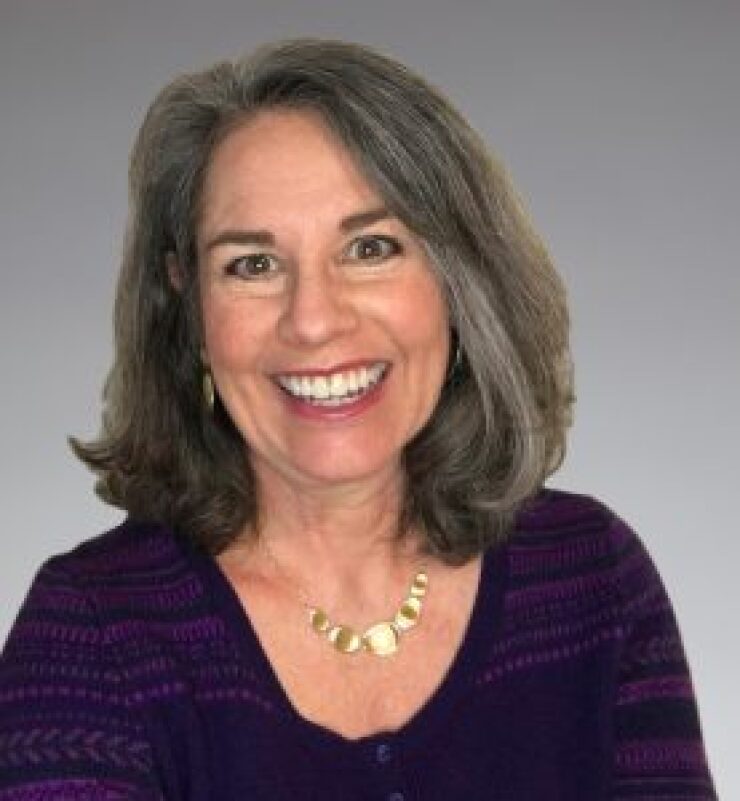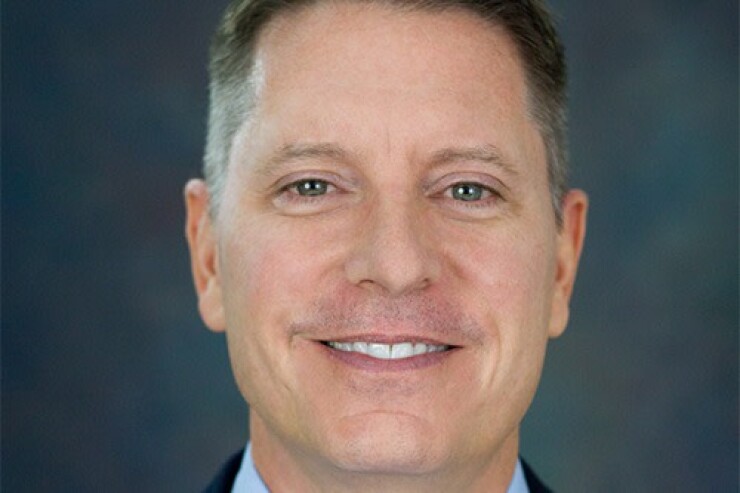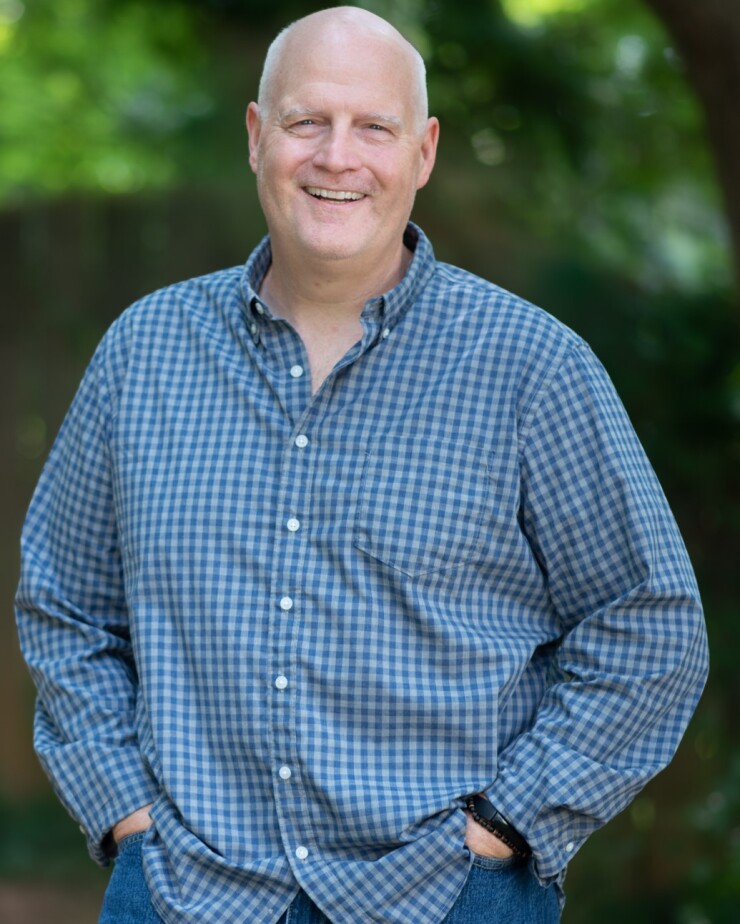Frances Goldman said she doesn't do pro bono financial planning for notoriety or accolades. And she certainly doesn't do it for the money.
She does it because she knows that a few hours spent each month sharing her years of financial expertise with someone in crisis can be life changing.
It's also something that Goldman, founder of
Before starting her financial planning firm in 2011, Goldman spent decades working as chief financial officer for a variety of nonprofit organizations including the New Israel Fund, the Working for America Institute and the Center for Inspired Teaching.
So even as a CFP who needs paying clients to sustain her business, Goldman said that giving away her time and knowledge to people who typically can't afford her services delivers the most satisfying return on investment.
"I find meaning in it," Goldman said. "One of the reasons I'm in this profession is to help people, and this is another way I can really help people and support the causes that I'm passionate about."

As service-minded advisors look for ways to give back, the world of no-cost and low-cost financial planning presents itself as an attractive avenue to make an impact.
However, access and understanding challenges on both sides means that smashing the barriers between advisors and low-income clients requires a concerted effort.
Making a commitment
This week, the CFP Board pushed the power of pro bono planning when its board of directors approved a resolution encouraging the more than
The board said pro bono financial planning "not only benefits those served but also enhances the profession and helps build the financial planning workforce of the future," stating that regular opportunities to volunteer can attract talent with a passion for giving to firms while boosting a culture of giving back in the financial services industry.
To better track their efforts, the CFP Board is now asking planners to log their volunteer hours every year when they apply for renewal of their certifications. According to the CFP Board's 2022 pro bono stats, 14% of all CFPs engaged in pro bono work last year.
There was a 30% increase in the number of CFPs who took on pro bono work from 2021 to 2022; and the 13,482 professionals who did turned in a total of 275,873 hours. The number of CFPs who hit the now-recommended 20 hours of pro bono work in 2022 was 4,634.
"Encouraging pro bono service among CFP professionals is part of our commitment to expanding access to competent and ethical financial planners," CFP Board CEO Kevin R. Keller said in a statement. "In today's challenging economic environment, where 63% of Americans express concerns about purchasing necessities, CFP professionals have the expertise to deliver essential financial planning services to underserved and at-risk Americans."
READ MORE:
In recognition of the resolution, CFP professionals who provide pro bono services will have the opportunity to earn "digital pro bono badges." The digital badges will be awarded to individuals who have completed 20-plus, 60-plus, or 100-plus hours of pro bono financial planning.
While it may seem like a small reward, Miriam Whitely, founder of the Eugene, Oregon-based
Whitely, also a Alliance of Comprehensive Planners member, volunteers with

"Right now, I'm volunteering an hour a week. And I'm loving it so much that my goal is to double that next year if I can incorporate it into my planning," she said. "But if you go into the industry wanting to help, and then you find there's so many people who need your help that you can't reach, it's always easy to know how to find those people.
"It just feels incredibly terrific to have the skills and be able to reach the people who need me who couldn't afford me."
Advice for everyone
The formal encouragement from the CFP Board comes as Americans continue to feel the grip of a difficult economic situation.
In a
And
Help is needed, but finding that help remains difficult. In a survey of 2,381 people conducted earlier this year, Northwestern Mutual found that only 35% of the respondents had sought the services of an advisor despite 62% saying that their financial situation could stand improvement.
One of the hurdles is preparing planners to do work that doesn't exactly coincide with their usual book of business. Those
To keep education at the heart of its efforts, CFP Board is deepening its relationship with the nonprofit organization the
Since 1995, the Foundation for Financial Planning, or FFP, has been supporting efforts that link volunteer financial planners to underserved populations. The founding members raised money to create an endowment fund that powers grantmaking to pro bono financial planning programs nationwide.
The FFP attracted enough resources for its new endowment fund to begin making grants in 1998 to programs offering free financial advice for vulnerable populations.
According to the FFP website, the organization has supported the delivery of free financial guidance to more than 700,000 people and has awarded grants totaling $9.2 million to national and community-based organizations in 38 states.
As part of the CFP Board partnership, the FFP will help CFP professionals match with nonprofit organizations seeking pro bono assistance for their constituents through its
The platform is an online service that connects advisors with nonprofits serving low- and moderate-income people. Pro bono service opportunities available via the platform include provision of free financial advice to low-wage workers, seniors, cancer patients, military veterans and more.
More than 115 nonprofit organizations use the website to post volunteer opportunities for CFP professionals with 45 different types of pro bono activities currently available. By the end of 2022, more than 1,800 total CFP professionals registered on the platform.

"We are excited that CFP Board's leadership is making this recommendation to formally encourage CFP professionals to provide pro bono financial planning to people in need," said FFP CEO Jon Dauphiné. "CFP professional volunteers are the driving force helping so many underserved families navigate their financial challenges, and we think this resolution will help persuade even more certificants to get involved."
Evolving to meet a need
Since the early days, the work being done by the FFP has expanded in many ways. One of the most lauded is the
After completing required training sessions, advisors who sign up for the Pro Bono for Cancer Campaign serve two to three clients a year. More than 1,600 clients have been helped since the program's inception.
Dauphiné said the program's rough guidelines are that each client gets about three meetings of about two hours each.
Seasoned volunteers tell FFP leaders that helping these clients often means being a manager of more than money. Families who get help have trouble concentrating on assets for long periods of time and benefit more from an approach that involves "bite-sized advice."
Dauphiné said he also understands the need to bridge existing gaps to deliver impactful advice. He previously told Financial Planning that many advisors express anxiety about the prospect of dealing with a different sort of client.
Because of that, FFP training sessions aren't meant to teach a set of advising techniques. The goal is instead to remind planners how knowledge and techniques they already possess can be useful to pro bono clients.
READ MORE:
Clients also share concerns about being judged for making poor financial decisions or not knowing how to budget properly. The FFP said advisors can ease concerns by gently probing to find an example of a good decision or behavior to build a client's confidence before digging deeper.
Advisors new to pro bono also wonder if they can be effective helping lower-income families, but FFP research revealed that 86% of advisors find that offering pro bono service is not more difficult than supporting high net worth clients.
Pro bono clients say their top needs include creating budgets/managing cashflow, building emergency funds and paying down debt.
"[Pro Bono work] is definitely a different clientele, so they do have different financial concerns that I'm not as versed in, but there are a lot of resources available to help the volunteers answer questions the clients might have," Erica James, a volunteer advisor for the FFP grant funded
The independent approach
While large legacy organizations like CFP Board, the FFP and the
That was the road Paul Peeler traveled as he worked to launch

A financial advisor with Integrated Financial Group in Atlanta, Peeler established the The Preparedness Project as an initiative to provide specialized planning support for Serious Mental Illness (SMI) caregivers and their families.
It was also a deeply personal pursuit. Peeler said it all began in 2015 when a family member began their own battle with a serious mental illness.
"It became clear and evident to my wife that the calculations for our own financial planning had changed dramatically on a number of different levels. And we've had to pivot quickly," Peeler told Financial Planning. "That was challenging for me, and I'm in the business. That's what I do for a living."
A few years later, Peeler said he was inspired by some friends who run a nonprofit in the Atlanta area that does repair work for homes in underserved communities. Their "clients" consisted of the elderly, people facing medical challenges or the impoverished.
"I remember thinking to myself, it would be so cool if I had those kinds of skills that I could help underserved populations like this, because I can't do carpentry," Peeler said. "But I was fortunate enough to have colleagues and people close to me and say, 'Paul, between your professional skill set and your life experience, you have a tremendous opportunity to give back and help some people that really need it.'
"Frankly, one of the downsides of this particular industry is that so many of the people that need our help can't afford to pay for it."
So Peeler set out to establish his low-cost planning idea. To create accountability and greater follow-through on the advice being given, there is a $50 fee to participate in The Preparedness Project, all of which is donated to the National Alliance on Mental Illness.
Peeler believes that people value things more when they have "skin in the game." And by taking this approach, the people getting help from advisors are giving back to an organization that can administer care to the mentally ill.
But without a model to follow, taking the project from concept to reality took a lot of trial and error. He made tweaks like adding systems to his CRM so he and his team could efficiently set goals and track progress.
He added that simply getting the word out continues to be a challenge.
"Individuals that fall in this particular category, there's not a big list of people that you can mail to. HIPAA doesn't let people aggregate the data on families that are dealing with this kind of thing, rightfully so," Peeler said. "And there are a lot of agencies and organizations that, for good reason, are wary of financial services people because they have seen individuals within their organizations being preyed upon by people that maybe don't have those individuals' best interests at heart."
Difficulties aside, Peeler said he won't stop until he reaches his goal of helping at least 500 families through The Preparedness Project.
"A really smart guy, his name is Albert Einstein, once said, 'not everything that can be counted, counts. And not everything that counts can be counted,'" Peeler said. "And I think that in an industry that tries to monetize everything, I think that there's a lot to be said for getting paid in ways other than money."
Navigating a complex world
For Whitely, the real purpose behind her drive to do pro bono planning is the fact that financial stress and anxiety don't care who you are.
In an instant, nearly everyone can fall victim to it.
"Even agony and despair about money is equally distributed. It doesn't differentiate among how much you have in the way of financial resources. But people with more resources have the ability to pay for it for advice and help," she said. "People without those resources have incredible challenges, but where do they go to navigate the same problems that our clients with money do?"
And to planners who are doing pro bono work for the first time, Whitely urges them to remember exactly how much knowledge they possess and how much good they can do.
"When we have clients who can pay for our services, a lot of the time their needs are quite complex, and we forget how much we know when we help people who are just trying to navigate the basics," she said. "A lot of this world is unfortunately incredibly complex … our level of understanding and complexity of the profession is at a 10. These folks need level two, three and four complexity, and they're so grateful for it."






